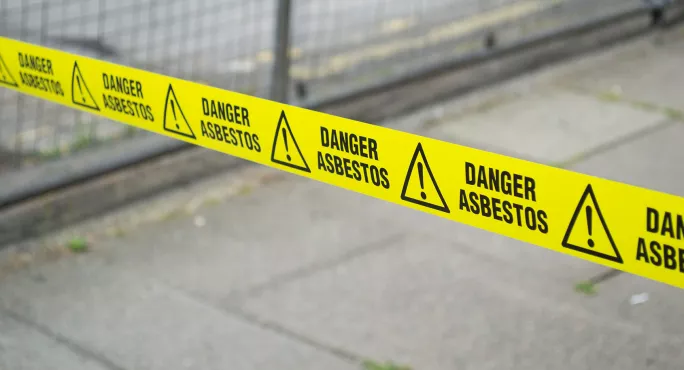MPs call for DfE answers on RAAC and asbestos in schools

MPs have called for the Department for Education to set out how many schools have buildings containing reinforced autoclaved aerated concrete (RAAC) and to explain how it plans to deal with asbestos across the school estate.
The threats posed by both RAAC and asbestos were raised during a Commons Public Accounts Committee hearing into school buildings.
During the meeting, the permanent secretary of the DfE, Susan Acland-Hood, apologised for the closure of a school that happened as a result of asbestos being discovered during demolition work being done by contractors on a government rebuilding programme.
In January, students from The King Edmund School in Rochford had to have lessons in a school in Southend when asbestos was discovered during demolition. The school had been chosen as part of the DfE’s school rebuilding programme.
Speaking at the committee, Ms Acland-Hood said: “On behalf of the department, we are very sorry about what happened at King Edmund. It shouldn’t have happened the way it did.
“Our expectation of contractors is that they will do a very thorough asbestos survey before they do the type of work that was done. I can’t say very much more about it because there may be some litigation.”
- News: 700,000 pupils in schools needing major repair
- Related: Perilous state of school buildings prove funding models must change
- Funding: School buildings cash too little to fix ‘shameful neglect’, DfE told
This was in response to concerns raised by committee member Marc Francois, who told the session that both RAAC and asbestos had been found at schools in his constituency.
Last month, the DfE told four schools to close after RAAC was found in their ceilings: Mistley Norman Church of England Primary School and Hockley Primary School, both in Essex, and two schools in the North East run by the Bishop Bewick Catholic Education Trust. Pupils are being taught remotely or on alternative sites.
Mr Francois, whose Rayleigh and Wickford constituency covers Hockley and Rochford, asked the officials how many schools across the country had been closed as a result of RAAC.
Jane Balderstone, the DfE’s director of capital delivery, told the committee that 300 schools had already been subject to specialist structural surveys to detect the presence of RAAC. RAAC was used extensively in public building projects from the 1950s to the 1990s but it deteriorates over time and is susceptible to sudden failure.
Ms Balderstone said: “A survey is being completed every two hours in a school. We have ramped up work over the summer; we are on track at the moment. We are working closely with schools and responsible bodies to minimise disruption.”
Ms Acland-Hood said the DfE has “500 slots in the School Rebuilding Programme of which 400 have schools identified announced. That gave us 100 slots remaining which we had kept partly to respond to things like RAAC. We always allocate on priority and where we have a RAAC rebuilding need, we expect [it] would be very high priority.”
Asked if 100 slots would be enough to deal with the RAAC problem, Jane Cunliffe, the department’s chief operating officer, said surveys were ongoing to assess the seriousness of each case.
A National Audit Office report last month said that the latest figures showed that 196 out of 600 assessments planned this year had identified RAAC in 65 schools, of which 24 required immediate action. Extra funding has been provided to ensure there is no immediate risk in these schools.
Mr Francois asked the DfE to provide the Public Accounts Committee with the completed survey findings of the 600 schools it was focusing on.
He also raised the issue of asbestos and asked for the long-term plan to deal with asbestos, adding that he understood removing every gram would cost “trillions”.
Ms Cunliffe said it was not the department’s policy to remove all asbestos as this would be very expensive and can be very dangerous. She added that the Health and Safety Executive advice was that if asbestos is well managed, it is better to remain in situ.
She added that of 400 schools selected for the School Rebuilding Programme, 67 had asbestos in them.
You need a Tes subscription to read this article
Subscribe now to read this article and get other subscriber-only content:
- Unlimited access to all Tes magazine content
- Exclusive subscriber-only stories
- Award-winning email newsletters
Already a subscriber? Log in
You need a subscription to read this article
Subscribe now to read this article and get other subscriber-only content, including:
- Unlimited access to all Tes magazine content
- Exclusive subscriber-only stories
- Award-winning email newsletters
topics in this article



